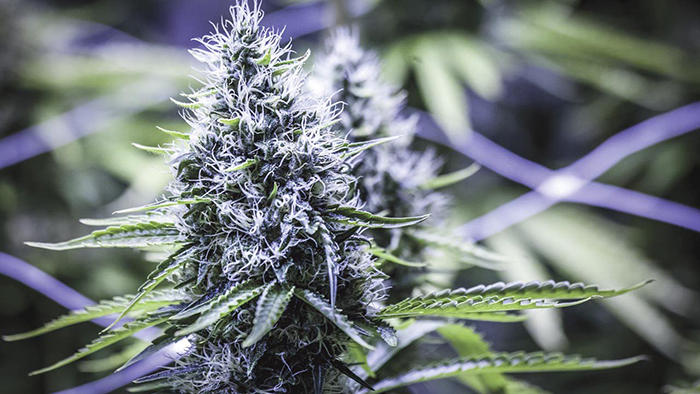Instead of cannabis legalization, the House of Representatives grandstands with a frivolous and misleading measure
If one wants to get a sense of the prospects for meaningful cannabis legislation now that the House of Representatives is dominated by a gaggle of right-wing kooks, one need only take a look at the first cannabis bill to come up in The People’s House. It has nothing to do with allowing banks to do business with pot companies, expunging the criminal records of people convicted of pot crimes, or, lord knows, legalizing weed federally. It’s a gun bill.
Three lawmakers, led by Alex Mooney of West Virginia, who introduced it, have put forward a measure to allow medical-marijuana patients to own guns. Currently, those patients are banned from owning guns because federal law, insanely, deems them to be “unlawful users” of a federally controlled substance. The other two lawmakers to sponsor the bill are Brian Mast of Florida and Thomas Massie of Kentucky. A similar bill was rejected at the committee level in 2019.
From a certain point of view, the bill makes sense: It is aimed at restoring a right denied to cannabis users (albeit only those with a medical ID). The Bureau of Alcohol, Tobacco, and Firearms requires most gun buyers to fill out a form. That form asks in part:
“Are you an unlawful user of, or addicted to, marijuana or any depressant, stimulant, narcotic drug, or any other controlled substance? Warning: the use or possession of marijuana remains unlawful under Federal law regardless of whether it has been legalized or decriminalized for medical or recreational purposes in the state where you reside.”
Even leaving aside the inanity of “addicted to,” it’s a pretty silly requirement, given that weed is legal for at least medical use in 39 states plus Washington, DC, and is fully legal in 21 states. And it highlights yet again the ludicrousness of the continued federal illegality of pot and the weird, bifurcated system it has created since the coming of state-level legalization, which has led to mass confusion. It’s also just organically dumb: There’s no basis for withholding the right to gun ownership (assuming such a right exists, which under law it does whether one likes it or not).
But the three sponsors of the bill don’t really care about any of that. They’re just ghouls trying to appeal to “the base” by finding yet another way to preen their love of guns. If they really cared about this issue—or about “freedom”—they’d be pressing hard for federal legalization, which would not only obviate the need for such a bill, but would solve all kinds of other problems, too. Or they would craft their bill to allow all users of cannabis, and not just medical patients, to buy guns in states where pot is legal.
The House trio is not alone. In November, a federal judge ruled in favor of the U.S. Department of Justice and dismissed Florida Agriculture Commissioner Nikki Fried’s lawsuit demanding that medical pot patients be exempt from the restriction. In its letter to the judge seeking dismissal, the DOJ declared without any underlying evidence that users of cannabis “pose a danger comparable to, if not greater than, other groups that have historically been disarmed,” such as mentally ill people.
The Biden administration stood behind its DOJ on this question, citing federal law, even as Biden himself was calling for decriminalization and other cannabis-policy reforms. Fried has appealed the judge’s ruling.
For advocates of reforming pot laws, and particularly those who favor tighter restrictions on guns, it might seem hard to know who to root for in this situation. The judge in the Florida case rightly cited the U.S. Constitution’s Supremacy Clause, which holds that, whenever there is a conflict, federal law supersedes state laws (which is why, technically, the FBI could raid a favorite dispensary at any moment, and it would be fully lawful despite that weed is legal under state law).
This is yet another example of a problem that would simply go away if Congress passed a legalization bill and the president signed it. But the country is now stuck with a Congress ruled by a majority party that is more interested in grandstanding on wedge issues like guns and “wokism” than in solving problems.








